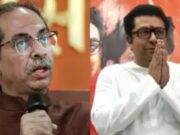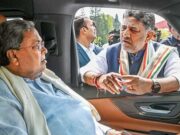
The New Delhi-based Federation of Indian Publishers told Reuters it had filed a case at the Delhi High Court, which is already hearing a similar lawsuit against OpenAI.
The case was filed on behalf of all the federation’s members, who include publishers like Bloomsbury, Penguin Random House, Cambridge University Press and Pan Macmillan, as well as India’s Rupa Publications and S.Chand and Co, it said.
“Our ask from the court is that they should stop (OpenAI from) accessing our copyright content,” Pranav Gupta, the federation’s general secretary said in an interview about the lawsuit, which concerns the ChatGPT tool’s book summaries.
“In case they don’t want to do licensing with us, they should delete datasets used in AI training and explain how we will be compensated. This impacts creativity,” he added.
Discover the stories of your interest
OpenAI did not respond to a request for comment on the allegations and the lawsuit, which was filed in December but is being reported here for the first time. It has repeatedly denied such allegations, saying its AI systems make fair use of publicly available data. OpenAI kicked off an investment, consumer and corporate frenzy in generative AI after the Nov. 2022 launch of ChatGPT. It wants to be ahead in the AI race after raising $6.6 billion last year.
The Indian book publishers’ group is seeking to join Indian news agency ANI’s lawsuit against the Microsoft-backed OpenAI, which is the most high-profile legal proceeding in the nation on this subject.
“These cases represent a pivotal moment and can potentially shape the future legal framework on AI in India. The judgment passed here will test the balance between protecting IP and promoting tech advancement,” said Siddharth Chandrashekhar, a Mumbai based lawyer.
Responding to the ANI case, OpenAI said in comments reported by Reuters this week that any order to delete training data would result in a violation of its U.S. legal obligations, and Indian judges have no right to hear a copyright case against the company as its servers are located abroad.
The federation said OpenAI offers services in India so its activities should fall under Indian laws.
Reuters, which holds a 26% interest in ANI, has said in a statement it is not involved in its business practices or operations.
OpenAI made its first India hire last year when it tapped former WhatsApp executive, Pragya Misra, to handle public policy and partnerships in the country of 1.4 billion people, where millions of new users are going online, thanks to cheap mobile data prices.
Worries over book summaries
A Reuters reporter asked ChatGPT on Friday for details of the first volume of the Harry Potter series by J. K. Rowling, published by Bloomsbury. The AI tool responded with a chapter-by-chapter summary and a key events summary including the story’s climax.
It stopped short of giving the actual text, however, saying, “I cannot provide the entire text of the book, as it is copyrighted material.”
Penguin Random House in November said it has started a global initiative to include a statement on the copyright page of its titles saying “no part of this book may be used or reproduced in any manner for the purpose of training” AI technologies.
The Indian federation’s December filing, which was seen by Reuters, argues it has obtained “credible evidence/information” from its members that OpenAI used their literary works to train its ChatGPT service.
“This free tool produces book summaries, extracts, why would people buy books then?” Gupta said, referring to AI chatbots using extracts from unlicensed online copies. “This will impact our sales, all members are concerned about this.”
The federation’s plea has so far only been listed before a court registrar in New Delhi who on Jan 10 asked OpenAI to respond in the matter. A judge will now hear the case on Jan. 28.





































